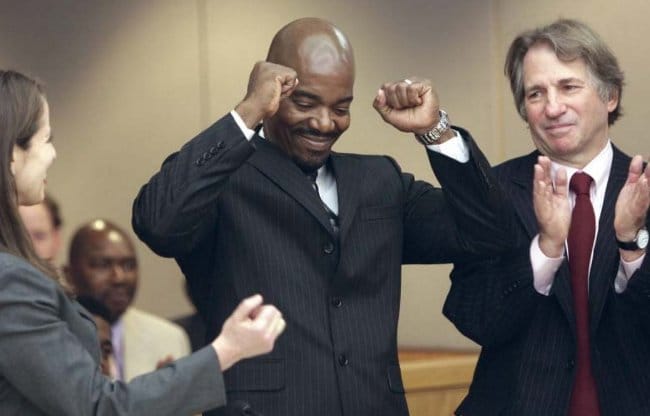The Innocence Project: Freeing The Unjustly Imprisoned


The Innocence Project uses modern DNA testing to free those who have been wrongfully sent to prison. They have helped in the release of over 250 inmates after DNA tests proved conclusively they did not commit the crimes. It is important to note these are not judgment calls nor are the circumstances murky. Rather, the new DNA evidence proved them to be innocent. But what is often murky are the circumstances leading to the convictions, including undue police pressure on witnesses, aggressive interrogation tactics, mishandling evidence, and prosecutorial misconduct.
Some of those freed were in prison for many years. Thomas McGowan spent 23 years in a Texas prison for a rape and burglary and was freed after new DNA testing on the rape kit proved he was innocent. Four Chicago men had indictments against them dismissed after a judge overturned their convictions because DNA evidence implicated another person. There have been 289 post-conviction DNA exonerations in the US, with 222 of them since 2000. The average time served was 13 years with about 3,800 years total served. Think about that. Imagine if 13 years of your life was taken away and you were locked up for crimes you did not do. About half of the exonerees get financial compensation. Among the troubling statistics, almost two-thirds of the exonerees are African-American and an overwhelming number of all of them are low-income.
There is something wrong with a justice system where so many innocent people are sent to prison, especially since they tend to be poor and black. The Innocence Project says these cases are not isolated but instead demonstrate systemic defects in the criminal justice system. The biggest problem is eyewitness misidentification, especially when different races are involved. "Studies have shown that people are less able to recognize faces of a different race than their own." Sloppy or improper forensic science is also problematic, as are false confessions. Appallingly, "in 35 percent of false confession or admission cases, the defendant was 18 years old or younger and/or developmentally disabled." Also informants are generally unreliable and may be trying to cut a deal for themselves. And unfortunately, police and prosecutors can and do engage in misconduct, destroy evidence, and withhold important facts which sometimes even include knowing the defendant is innocent.
The Innocence Project has worked with several states and court systems and reform is coming. They have labored long and hard in the dark world of wrongful imprisonment and welcome your support.


